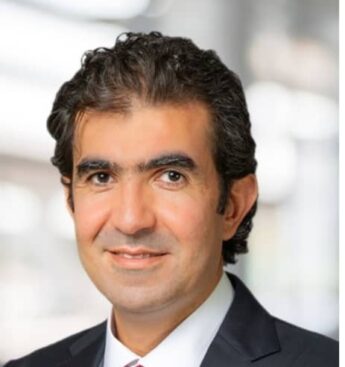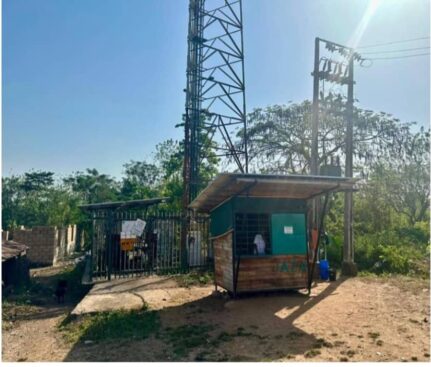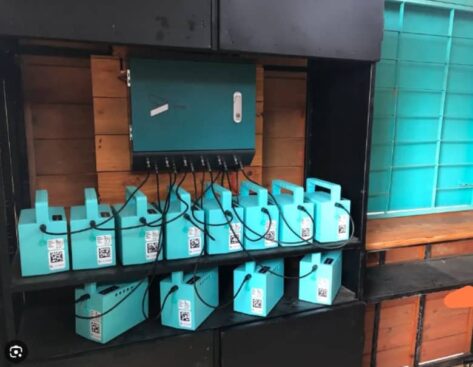Empowering communities and paving the way for a Sustainable Future: IHS Nigeria’s partnership with Jaza Energy
In pursuit of more sustainable energy solutions, IHS Nigeria, part of the IHS Towers group, and Nigeria’s leading communications infrastructure provider, has formed a strategic partnership with Jaza Energy. This collaboration aims to enhance energy access in underserved communities across Nigeria, while contributing to IHS’ broader efforts to reduce the environmental footprint of their operations. […]

1 (2)
In pursuit of more sustainable energy solutions, IHS Nigeria, part of the IHS Towers group, and Nigeria’s leading communications infrastructure provider, has formed a strategic partnership with Jaza Energy. This collaboration aims to enhance energy access in underserved communities across Nigeria, while contributing to IHS’ broader efforts to reduce the environmental footprint of their operations. The partnership is a testament to both companies’ commitment to sustainability and innovation, highlighting their shared vision of providing essential services to underserved communities.
Jaza Energy, known for its innovative approach to clean energy access will install solar-powered hubs, known as Jaza Hubs, at 250 IHS Nigeria sites in Nigeria. These hubs not only provide clean energy to help power the towers, but also offer a more sustainable energy source for local communities. The excess power generated by the solar panels on these hubs will be used to charge battery packs for local households and businesses, reducing reliance on diesel generators.
Closely aligned with this partnership’s sentiment is IHS Towers’ Project Green initiative. The initiative involves an investment of over $200 million between 2022 and 2024, as part of IHS Towers’ Carbon Reduction Roadmap and target to reduce kilowatt-hour emissions intensity by approximately 50% by 2030.
“Sustainability is a core value at IHS Towers. Project Green is part of our commitment to reducing our environmental footprint. This partnership with Jaza Energy complements this initiative, as we seek to integrate more solar solutions on our sites, and simultaneously help support local communities. In this case, by helping Jaza Energy provide more local households with access to battery packs for domestic use, as substitutes for diesel-powered generators.” stated MohamadDarwish, CEO of IHS Nigeria.

The impact of the Jaza Hubs extends beyond providing power. Each hub acts as a one-stop energy shop, offering a vital service to communities that have traditionally lacked access to reliable electricity. Jaza Energy’s unique model helps foster community development by employing local women to operate the hubs. This approach not only provides job opportunities, but also helps empower women within these communities, fostering local economic growth and social inclusion.


To date, Jaza Energy has delivered over 3 million solar battery swaps and reached more than 100,000 people in Tanzania and Nigeria with its clean energy solutions. The company’s expansion into Nigeria, supported by its partnership with IHS Nigeria, is expected to reach approximately 200,000 more people by the end of 2025, bringing clean, renewable energy to some of the most underserved areas in Nigeria.
“By partnering with IHS Nigeria, Jaza will extend the reach of clean energy even further, building upon IHS Nigeria’s foundational role in connecting the nation. We are thrilled to collaborate with a company dedicated to sustainability, and we look forward to aiding IHS Nigeria’s journey towards a greener future,” said Jeff Schnurr, CEO of Jaza Energy.

Jeff Schnurr, CEO of Jaza Energy.
IHS Towers has a track record of promoting sustainable energy solutions. The company’s efforts go beyond its current Project Green and comprehensive approach to reducing its carbon footprint. Prior to Project Green, IHS Nigeria had already deployed hybrid power systems on over 9,000 sites across Nigeria between 2016-2018. By integrating solar power with traditional energy sources, these systems have helped reduce reliance on non-renewable energy sources.
Beyond Jaza, as part of its commitment to community support, IHS Nigeria has implemented various initiatives to provide reliable power to local communities and essential services. For instance, in 2022, the company donated 106 units of solar-powered streetlights across three Nigerian states, benefiting approximately 510,000 residents.
The company also takes an active role in environmental stewardship and education. Through its Clean Air Campaign, launched in 2022, IHS Nigeria collaborated with external stakeholders to help address emissions. Through media channels, IHS Nigeria sought to raise awareness about the importance of reducing air pollution and the role of sustainable energy solutions in achieving this goal.
IHS Nigeria also established an Energy Hub in Alimosho, Lagos State, a well-equipped space for entrepreneurs to develop innovative ideas and solutions that seek to contribute to the nation’s energy efficiency goals. This hub serves as a focal point for energy-related innovation, providing a platform for collaboration and knowledge sharing among industry experts, entrepreneurs, and the broader community.
The partnership between IHS Nigeria and Jaza Energy is more than just a business collaboration; it is a shared commitment to creating a sustainable and inclusive future. By prioritising energy efficiency and embracing renewable sources such as solar power, both companies are helping pave the way for a brighter and more sustainable future. The projected emissions reduction of approximately 32,600 – 33,000 tonnes of CO2e over the seven-year agreement, from the 250 hubs, is a step towards achieving Nigeria’s environmental goals.
In an era where access to reliable and clean energy is crucial for development, the IHS Nigeria and Jaza Energy partnership represents a model for how private sector collaboration can drive positive change.
